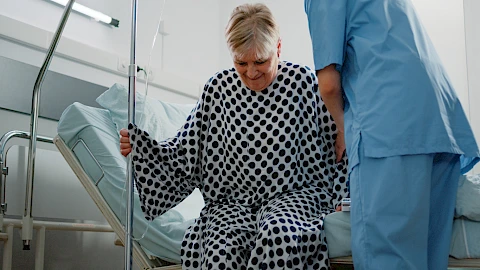
Caring for a senior loved one who is recovering from surgery can be overwhelming. It involves many tasks that you might not have faced before. Transitional care is necessary to ensure that your loved one heals smoothly and comfortably. As a family member, your involvement in the planning process makes a significant difference in their recovery. Here, we'll guide you through the steps and considerations for managing transitional care.
What Is Transitional Care?
Transitional care refers to the short-term help required after your loved one returns home from surgery. It is a bridge between the hospital and the familiarity of home. Post-surgery, seniors may need assistance with:
- Transportation to and from rehab or doctor's appointments
- Toileting and hygiene
- Managing multiple medications
- Adjusting dietary needs according to doctor's guidelines
These responsibilities can be overwhelming. Knowing what to expect will help you manage the temporary challenges more effectively.
Assessing Your Loved One's Specific Needs
Every senior has unique needs after surgery. To properly care for them, assess their physical therapy requirements, medical appointments, and home safety. Check if they need help with exercises or attending appointments. Consider the frequency and mode of transportation required for medical visits. Ensure that the house is safe and equipped to prevent falls or injuries. Consult with healthcare providers to develop a comprehensive care plan. They can provide insights into what specific assistance your loved one will need.
Exploring Transitional Care Services
Fortunately, there are many transitional care services available in Northern Kentucky. Hiring professional in-home medical caregivers can offer significant benefits, including expertise in handling post-surgical care, relief for family members from daily caregiving tasks, and assurance of proper medication and dietary management. In-home support and companion caregivers can assist with non-medical tasks, from shopping to meal preparation. Some seniors might be better off in a rehabilitation facility, where all their needs (including physical therapy) are provided on-site.
Transitional care services not only help your loved one recover but also ease the stress on family members, dividing their time between care and other responsibilities.
Determining the Right Services for Your Family
Choosing the right services is essential for effective care. Start by identifying your loved one's needs and listing what kind of help is necessary. Consider the level of care required, deciding whether full-time support or part-time help is needed. Determine your budget and how long you'll need services. Involve the seniors in the decision-making process to ensure they feel comfortable and respected.
Bring Senior Helpers Onto Your Recovery Team
Planning for transitional care post-surgery is vital for a successful and stress-free recovery. With the right preparation and support, you can ensure your loved one's well-being. Once you have a clear post-surgical plan, take action to set up transitional care services. Don't wait until the last minute to arrange care.
You are not alone in this journey. Senior Helpers Northern Kentucky is here to provide tailored in-home transitional care support services to seniors in the Florence, Edgewood, and Union areas. Contact us today, and let us help you through this challenging time.